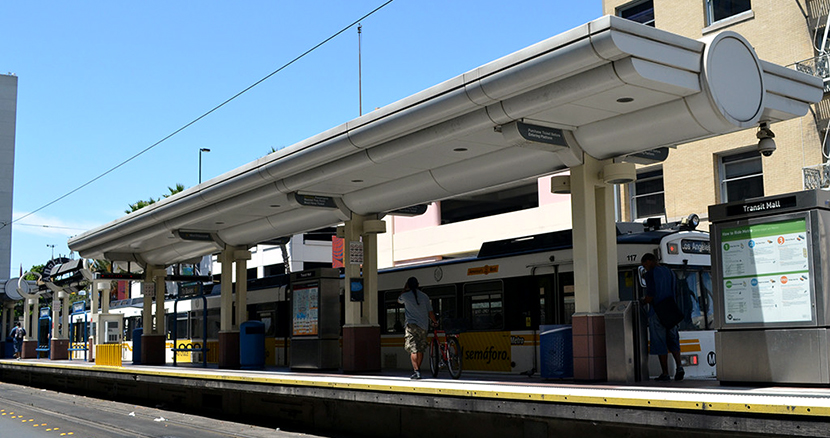Publisher's note: This post appears here courtesy of the Carolina Journal, and written by John Hood, Chairman of John Locke Foundation.

If you live somewhere other than the western side of North Carolina's Research Triangle region, you may not have thought that a long-planned light-rail line between Durham and Chapel Hill had much to do with you. So, when the $3 billion-plus project
met its demise a few weeks ago, you may not have taken much notice.
The truth is that even if you live in Durham and Orange counties, the proposed 18-mile transit line would primarily have affected your wallet, not your daily commute or lifestyle. That the project was incompatible with the basic facts on the ground was its fatal flaw - a flaw that was only revealed, not caused, by skepticism from federal officials, state lawmakers, and such affected parties as Duke University and the North Carolina Railroad.
North Carolina is a populous, fast-growing, and urbanizing state. But that doesn't mean our settlement patterns are friendly to large-scale rail transit, or likely ever to become so. Our "urban" counties are really suburban places for the most part. Most people still opt for homes in low-density developments. Most don't work, live, or shop in downtowns.
There are, of course, counterexamples. Markets accommodate a variety of consumer preferences. There are smart business people serving those needs and making good money doing so. Good for them - and governments ought not to stand in their way by imposing onerous land-use restrictions.
But there is no evidence of mass abandonment of lifestyles built on decentralization, dispersal, and automobility. North Carolina policymakers shouldn't pretend otherwise, or try to engineer a different outcome by expending billions of dollars and issuing thousands of regulations to cram North Carolinians into boxes, literal and figurative, that don't reflect their revealed preferences.
What are those basic "facts on the ground"? I'll offer you two sets of data. One is from
Smart Growth America, a group that advocates pro-density, pro-rail policies. It computes a "sprawl index" for metropolitan areas across the country, taking into account such factors as density, street grids, walkability, and the proximity of employment centers to residences.
In the most recent study, North Carolina contained a disproportionate number of metros at the low end of the "smart growth" spectrum: Raleigh-Cary (ranking 155 out of 221 places evaluated), Wilmington (180), Asheville (183), Durham-Chapel Hill (191), Charlotte-Gastonia (197), Fayetteville (203), Greensboro-High Point (208), Winston-Salem (209), and Hickory-Morganton-Lenoir (dead last at 221)
Our state's dispersed settlement patterns aren't simply the result of zoning laws or road-building guiding residential development. They reflect the dispersal of employment. People don't just live on the outskirts of cities and work downtown. Maps of daily commuting patterns within and among North Carolina counties resemble not so much a trunk with branches as a dense thicket.
Moreover, jobs are getting more dispersed, not less. A
2016 report from the Brookings Institution looked at the proximity of jobs to central business districts in the nation's 100 most-populous metros. In all three North Carolina metros covered in the study - Charlotte-Gastonia, Raleigh-Cary, and Greensboro-High Point - the share of jobs within three miles of the urban core was lower in 2010 than it was in 2000. Those declines in job concentration were larger in North Carolina than for the nation as a whole.
No mix of public policies, no matter how radical or costly, could change these underlying realities very much even if such a goal were desirable. North Carolina's communities are polycentric. They don't look like spokes around a hub. We'll see plenty of mixed-use developments crop up - to serve the needs of people who want to live, work, shop, play, and go to school without having to travel long distances - but those places will be dispersed as well, not clumped into central business districts. And we'll continue to see rural places become suburban ones.
Automobility will remain the default commuting preference. But to the extent North Carolinians voluntarily give up driving, the options best suited to their needs will include buses, vans, ridesharing, and telecommuting. Railroads aren't the future. They're the past.
John Hood (@JohnHoodNC) is chairman of the John Locke Foundation and appears on "NC SPIN," broadcast statewide Fridays at 7:30 p.m. and Sundays at 12:30 p.m. on UNC-TV.


























